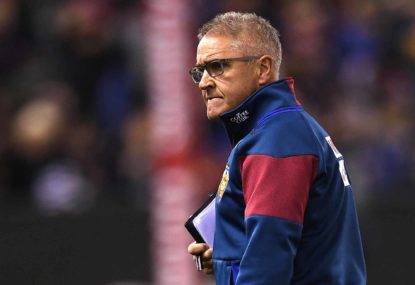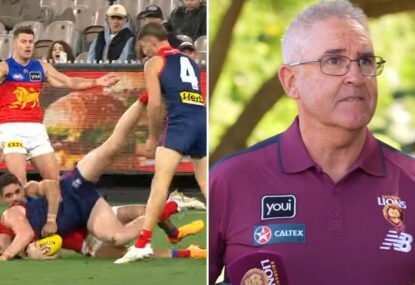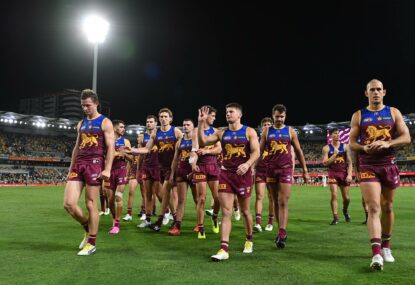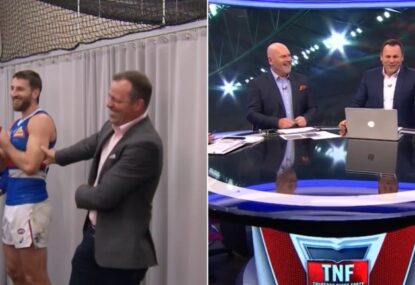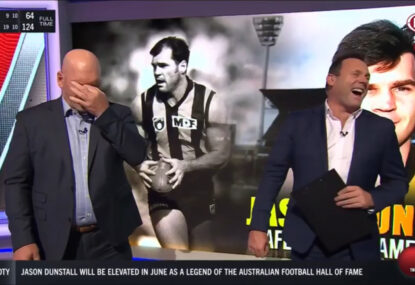Long gone are the days of all matches being played at the same time on a Saturday afternoon. Now only the mediocre match-ups take place under the light of day.
While footy has been played under artificial light since the old Lakeside Oval hosted midweek cup matches in the 1950s, the night blockbuster is a relatively new phenomenon, correlating with the first big broadcast deal signed at the beginning of the 21st century.
Once the domain of North Melbourne, one of the competition’s smallest clubs, Friday night is now usually reserved for a clash involving one of the league’s big four clubs: Collingwood, Richmond, West Coast and Essendon. Despite the form of any of these sides, the AFL can guarantee a decent crowd and the Seven Network a decent viewing audience.
But other clubs want a slice of the pie, and Seven are also keen for more stand-alone fixtures in prime time. While Saturday night is preferable to competing with local footy on Saturday afternoon, it’s still a congested time slot, having to deal with another AFL match and multiple other codes.
With midweek footy out of the equation, there’s three options the AFL have previously trialled and can look to implement in the future.
Thursday night
Thursday night matches have become a semi-regular occurrence in the AFL fixture, with upwards of five being held each season since the last broadcast rights deal.
From the traditional season-opening clash at the MCG that stretches back to 2008, to the Easter Thursday clash at the Gabba the Brisbane Lions hope to make a marquee fixture in years to come, Thursday night seems to be the time slot that looms as the most likely to host weekly footy come the next broadcast rights deal.
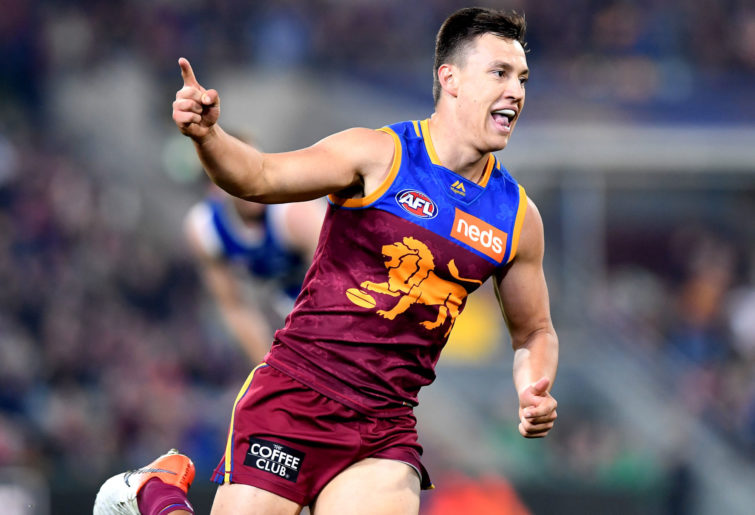
(Photo by Bradley Kanaris/AFL Photos via Getty Images )
The outbreak of COVID-19 has allowed the AFL to schedule a Thursday night match for at least the next four weeks. They will be hoping for strong ratings that may assist in minimising the seemingly inevitable shortfall the AFL faces upon negotiation of the next deal.
Thursday night has traditionally been much more appealing to the masses than Sunday or Monday night footy, with an average attendance of 42,226 from seven home-and-away matches in 2019 excluding the season opener.
Five of these matches were held outside of Victoria. Thursday represents a prime opportunity for clubs outside of the Melbourne bubble to host marquee fixtures, given the home of footy’s stranglehold on Friday night.
The AFL have also had a first-week Thursday night final every year since 2016 in place of the once-traditional Sunday final.
Sunday night
The AFL has brought back Sunday night footy in 2020 (at least for the first four weeks) to replace the Sunday twilight time slot.
Often reserved for the WA sides due to the time difference, the Sunday twilight time slot has also been used to bury matches that may result in blowouts or uninspiring spectacles, with fans suffering footy fatigue often tuning out after the Sunday afternoon game.
In 2019 the AFL experimented with pushing back the Sunday WA-based matches to start at 3:20pm local time (5:20pm AEST), with Foxtel remaining the host broadcaster.
Sunday night is one of the NFL’s marquee matches. The AFL previously trialled the time slot in 2014 when Collingwood met traditional rivals Carlton in front of fewer than 41,000 at the MCG, prompting Pies president Eddie McGuire to ask for compensation from the league.
The match enjoyed a peak audience of 1.019 million across free-to-air and pay TV, yet the match attendance was ultimately the deciding factor in the AFL opting for a Thursday night long-term strategy.
That match, however, kicked off at 7:10pm while the games scheduled in 2020 will start at 6:05pm.
Of the four matches to come in the time slot, GWS hosting Hawthorn in Round 5 seems to be the pick of an average bunch, which suggests the AFL has merely accepted requests from Foxtel for clear air to not go up against the free-to-air Sunday afternoon game, and Sunday night isn’t an actual part of the AFL’s future.
Monday night
Despite early suggestions the AFL may look to cram matches on weeknights, the league has opted against using Monday night.
While the league is no stranger to Monday footy with the annual Easter Monday and Queen’s Birthday blockbusters occupying afternoon slots, the AFL has been apprehensive to use the time slot that is much revered in the NFL.
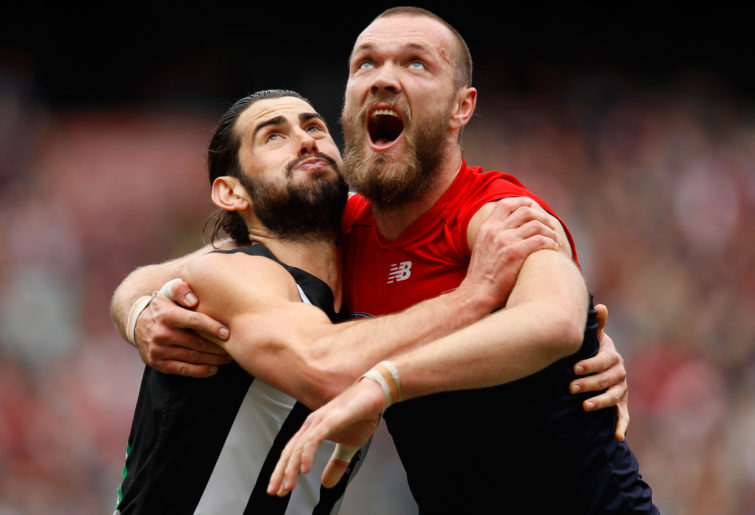
(Photo by Michael Willson/AFL Media/Getty Images)
From 2009 to 2014, St Kilda hosted a night match at Docklands on the Monday after Mother’s Day in an attempt to minimise footy on a day that traditionally drew smaller crowds.
The first match in 2009 against Collingwood drew over 46,000, while subsequent games against Carlton the following three seasons drew an average of 41,088. These games were also broadcast on free-to-air.
Perhaps due to the declining form of both clubs, just 34,054 attended the 2013 clash while only 26,708 watched the final 2014 edition at Etihad Stadium, which had also been relegated to Foxtel.
While a comprehensive trial was never undertaken, the AFL had seen enough and canned all Sunday and Monday night games at the end of 2014.
Monday nights also proved unsuccessful for the NRL, who ditched the concept they introduced in 2007 for Thursday night matches in 2017.
The future
With the new renegotiated broadcast deal around the corner, it’s likely Thursday night footy will become a weekly ritual.
Calls will also continue for a night grand final and there’s every chance the AFL may trial it this year. All finals with the exception of two (one Saturday game in the first week and the grand final) are currently played at night, so it would perhaps make sense to have the big dance under lights.
There will be public outcry if it goes ahead, but most of footy’s biggest moments of late have taken place with a yellow ball anyway.
Whatever happens to the last Saturday in September (or last Sunday in October as it could be this year), it seems more night footy in the future is inevitable.































































































